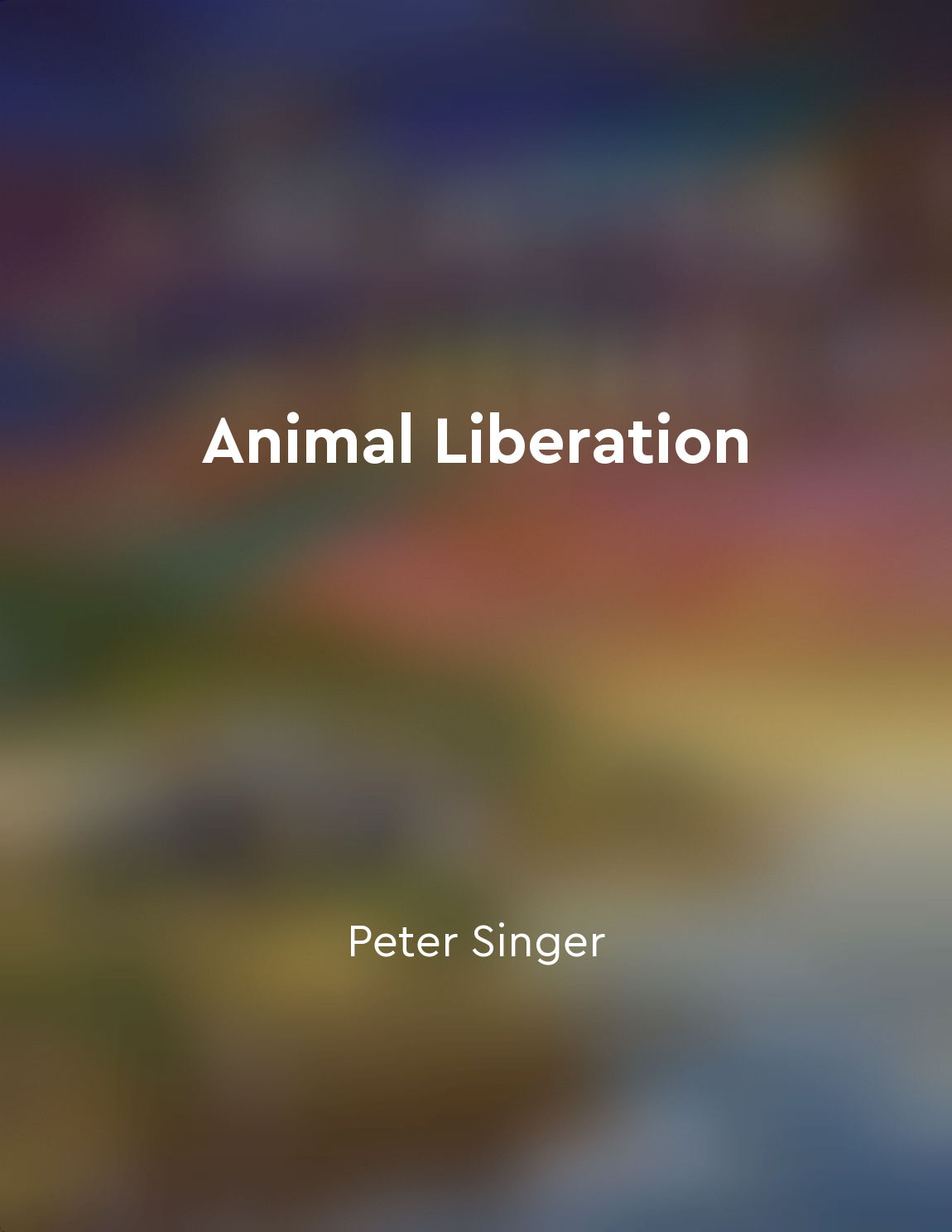The philosophy of animal rights challenges traditional beliefs from "summary" of Animal Liberation by Peter Singer
The philosophy of animal rights challenges traditional beliefs by questioning the moral status of animals and the ethics of exploiting them for human purposes. This challenge stems from the idea that animals, like humans, are sentient beings capable of experiencing pain, pleasure, and other sensations. In the past, animals were often viewed as inferior creatures lacking in reason and therefore undeserving of moral consideration. However, proponents of animal rights argue that this view is outdated and unjust, as it fails to take into account the interests and welfare of animals. By challenging traditional beliefs, the philosophy of animal rights calls into question the practices of industries that exploit animals for food, clothing, entertainment, and research. For example, factory farming, which subjects animals to inhumane conditions and treatment, is seen as morally problematic from an animal rights perspective. Similarly, using animals for testing in laboratories raises ethical concerns about the suffering and harm inflicted on these sentient beings. Moreover, the philosophy of animal rights challenges the notion of speciesism, which favors humans over other species simply based on their species membership. This form of discrimination is likened to other forms of prejudice, such as racism and sexism, and is seen as unjust and arbitrary. By advocating for the equal consideration of interests regardless of species, animal rights proponents seek to promote a more inclusive and compassionate society.- The philosophy of animal rights presents a radical shift in the way we think about animals and our moral obligations towards them. By questioning traditional beliefs and practices that harm and exploit animals, this philosophy challenges us to reexamine our relationship with other sentient beings and strive towards a more ethical and compassionate world.
Similar Posts
Flood theory questions beliefs
The Flood theory challenges our core beliefs about the world and our place in it. It raises questions that make us rethink what...

Collaboration among different entities crucial for conservation success
The success of conservation efforts often hinges on collaboration among various entities. When different organizations, governm...


